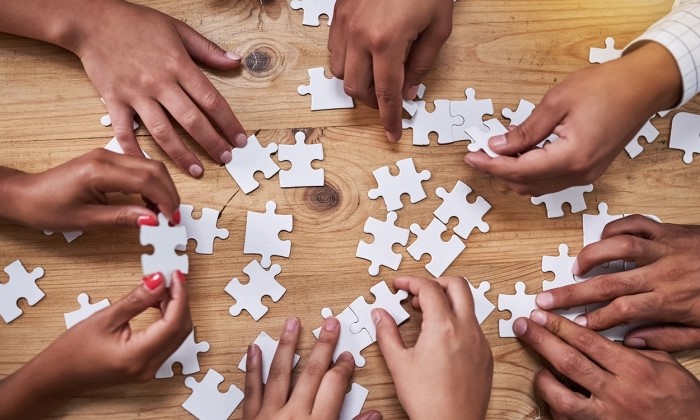
If you were to chart my brain activity from these past few months onto a line graph, you’d probably see an abnormally large spike on May 11th, which is the day I started at my remote internship for the NYC office of Business for Social Responsibility.
In the past few days, I’ve been exposed to a broad range of topics such as modern slavery, artificial intelligence, upskilling and reskilling employees, how COVID-19 is redefining norms within the workforce, how the US produce industry is adapting to COVID-19, and thanks to the orientation videos, how to avoid getting conned by a hacker named Sparrow. Though this first week has been a blur, I distinctly remember a call with an expert on supply chain sustainability at BSR where I was floored by the horrific effects of this pandemic on developing countries.
In particular, I was stunned to learn that millions of workers in the garment industry in Asia, especially in countries such as Bangladesh, are being laid off or furloughed as retail sales plummet due to the pandemic. This devastating loss of income often crushes dreams of education, affording medicine, and forces many women into difficult predicaments such as returning to their rural communities where they may become young brides against their will. Some of these affected workers are even in positions where they perceive their life as a financial burden.
This horrific situation in the status quo is an illustration of how alarmingly tight the livelihoods of workers are intertwined with the decisions of their employers up the supply chain. The decisions that companies make ripple through families for generations as corporations have the power to give people better lives or take their lives away completely.
I often wonder if companies truly understand, or if they even want to understand, the magnitude of their decisions. And more despondently, whether or not, if it boils down to it, companies are truly willing to put the lives of people over profit instead of merely making decisions that help both people and profits. For the better part of my life, unsettling thoughts about the horrors that could be perpetuated by businesses drove me to demonize the business sector and to seek nonprofit experiences from local and international perspectives.
But through those experiences, especially my Duke Engage Durham-Durham program, I slowly began to understand the vastness of the complex ecosystem in which nonprofits exist not only by themselves, but alongside governments and businesses. It became undeniable to me that businesses wield an enormous amount of power and resources that could be used to not only advance their organization’s primary purpose for existing, but to also support society and contribute to nonprofits that could direly use their help. If I wanted to aid in assembling a glorious puzzle of a better society, it would be unproductive to cling onto one piece of the puzzle and throw away the rest of the pieces.
Interning at BSR this summer allows me to examine how these pieces are linked together, how businesses can ensure that their operations don’t unintentionally perpetuate horrors such as modern slavery in their supply chains, and what businesses can do for society beyond merely mitigating the negative effects of their operations on society. BSR enables companies to critically evaluate the ways in which their operations and existence are impacting the world around them and proposes ways in which they can address the wounds that they’ve created or prevent the wounds that they may create in the future.
Perhaps I am naïve when I say that I believe corporations can be good—at least, I believe that they have the capacity to be good. At this point in my experiences, it seems to me as if a good corporation is one that actively seeks out and is aware of its effects on society, takes consistent and effective action in combating the harms it perhaps has created, and passionately builds society up. Businesses cannot be defined merely by the quality of their products or service—they must also be defined and held accountable by the way they treat their employees, the environment, the communities in which they inhabit and impact, and so much more.
I am fearful that I may read this blog post one day and be disappointed, and perhaps even regret, that I once made such horrible jokes and that I once believed that corporations have the capacity to be good. However, I know I will always fondly look upon the experiences I’ve had with BSR that have led me to my understanding of the nature of corporations and the world around me.
Even just a week in, my supervisor and her colleagues have shown me extraordinary warmth and have patiently taught me the basics of BSR’s operations in addition to introducing me to their areas of expertise. They truly inspire me and I am very grateful for the opportunity to learn from them for the next nine weeks.
This pandemic has highlighted a lot of what people have already known about society: we love snacking and streaming shows. Plot twist: I am “society” and “people” are my parents. But it’s also accentuated the fragility of our plans, reminded us of the vastness of the unknown, and shown us how the cracks in our society have deepened. There seems to be a discouraging cloud of uncertainty constantly hovering in everyone’s minds regarding how long, if ever, it may be before the world returns to its usual rhythms.
But for now, I’ll trade the concrete jungle where dreams are made of for a suburban sprawl where home cooked meals are lovingly made and rest assured that while the world is on pause, organizations like BSR are hard at work assembling the puzzle pieces for a better world.
